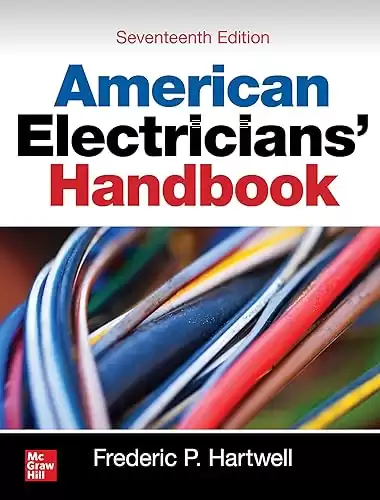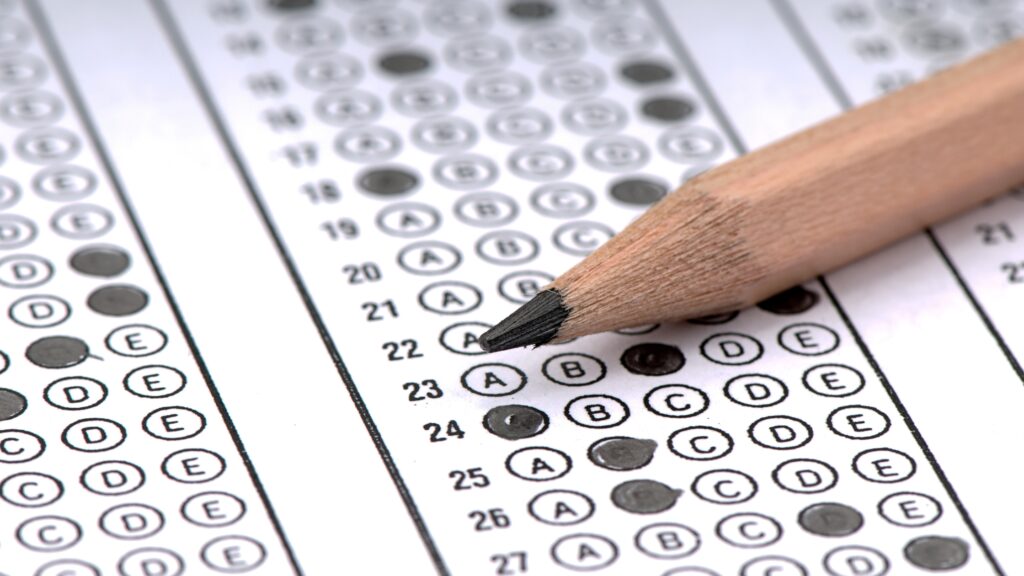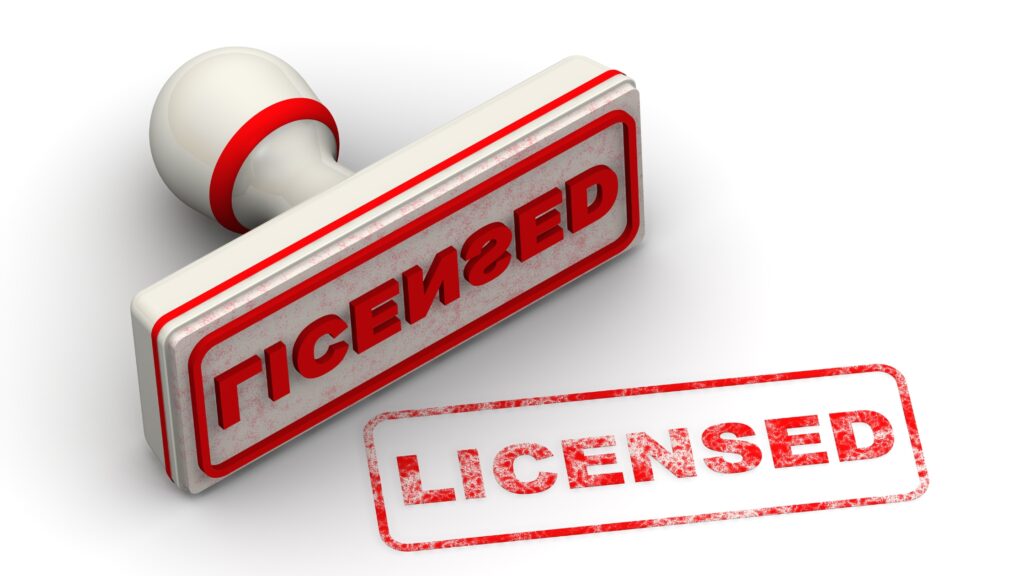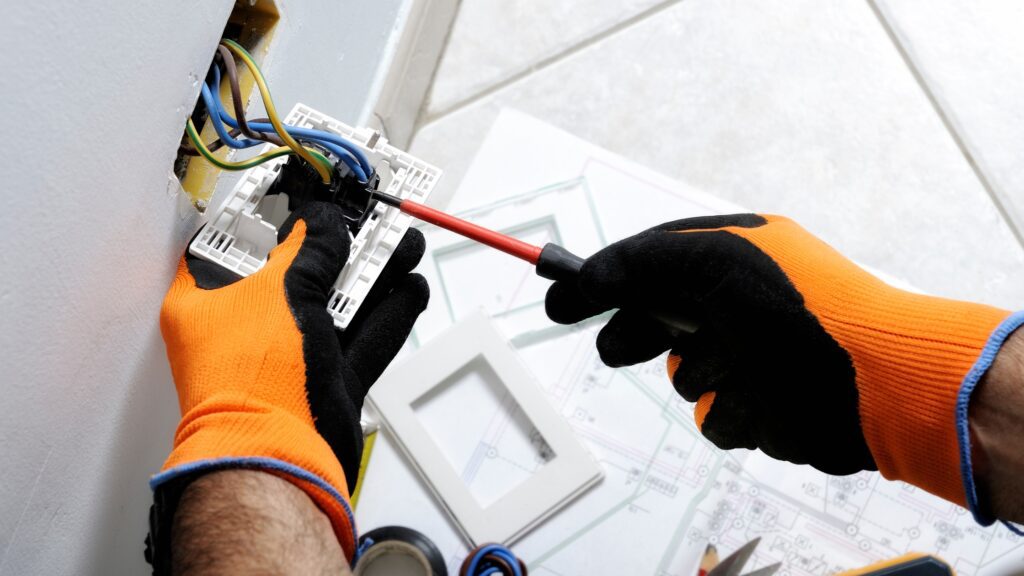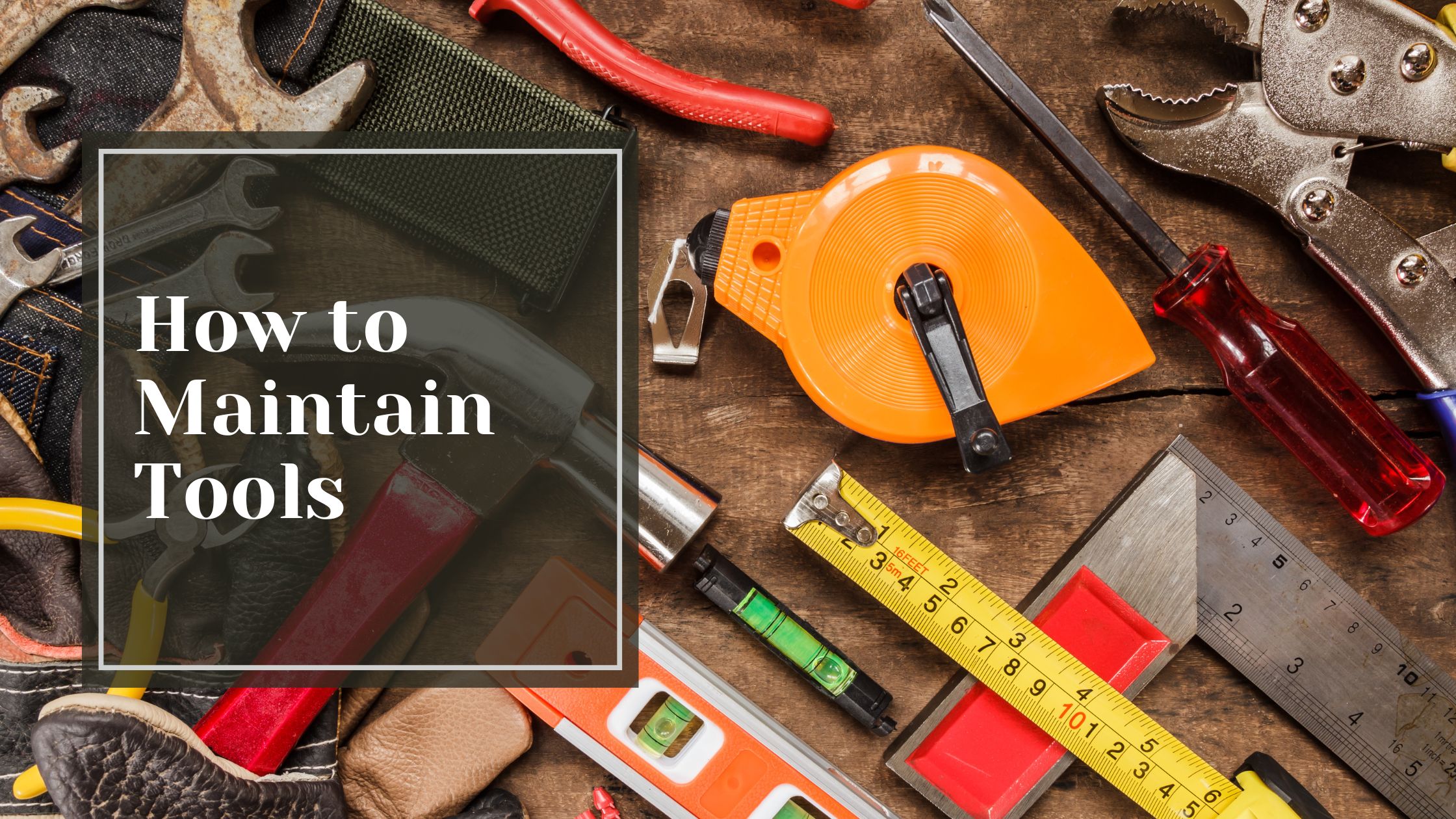Becoming a licensed electrician is a rewarding and stable career choice that requires dedication and the right training. This guide will walk you through the essential steps on how to get an electrician license, from education and apprenticeships to passing the necessary exams. Whether you’re just starting or looking to advance in your career, understanding these requirements is crucial for your success.
Table of Contents
TogglePrerequisites to Become a Licensed Electrician
Education
To become an electrician, you’ll need to complete an accredited training program, usually at a technical or trade school. Electrician apprenticeship programs typically award a certificate or associate’s degree and take about four years to complete. They combine paid on-the-job training with classroom coursework.
Experience
Most states require a specific amount of hours of job training, typically around 2,000. While working as an apprentice, you will be under the direct supervision of a licensed electrician who will show you how to install wiring, connect circuits, and fix electrical problems.
Licensing
All 50 states as well as the District of Columbia mandate that electricians obtain licenses. However, these requirements differ from state to state but mainly involve passing an examination that tests your knowledge of electrical theory, national electrical code, and local rules. Although many states recognize out-of-state licenses, some do not so you should consult your state’s licensing board.
Keep Your Skills Current
Licenses must be renewed periodically; usually every 1-3 years. To renew it, you have to complete a certain number of hours of continuing education credits necessary for maintaining your skills and staying abreast of the latest technologies in the field such as safety standards or building codes.
The "American Electricians' Handbook, Seventeenth Edition" is a practical, on-the-job resource packed with essential information on current energy-efficient technologies, safety methods, and industry standards. With detailed explanations, diagrams, and calculations, it's an indispensable tool for electricians at all skill levels.
Electrician Apprenticeship Programs and On-the-job Training
So you want to become a licensed electrician right? Apprenticeship programs are one way of gaining experience. These programs normally last for four years and consist of both paid on-the-job training and technical instruction. During this time frame as an apprentice, you will be working full-time for a licensed electrician and learning how to install and maintain electrical systems in homes, businesses,
Classroom Learning
In the classroom, you’ll learn electrical theory, blueprint reading, safety practices, and code requirements. You’ll study things like Ohm’s law, circuit design, and the National Electrical Code. Pay close attention here – you’ll need this knowledge to pass your licensing exam!
Getting Paid While You Learn
As an apprentice, you earn a paycheck while getting valuable on-the-job experience. You’ll start by doing basic tasks like installing outlets and switches, then move on to more complex work like connecting breaker panels and wiring entire buildings. Your journeyman electrician will supervise you closely, especially at first. Work hard, ask lots of questions, and be willing to get your hands dirty – you’ll be wiring like a pro in no time!
Earning Your Journeyman License
Once you’ve completed the required hours of paid on-the-job training (usually 4,000 hours), and technical courses, and passed your exam, you’ll earn your journeyman electrician license. Congrats! You now have an exciting and stable career as an electrical professional. Many electricians continue working as journeymen. But if you want to supervise apprentices or work on more complex projects, you can pursue becoming a master electrician.
Master the journeyman electrician licensing exam with 'Journeyman Electrician Exam Secrets Study Guide.' This comprehensive resource covers essential topics such as electrical theory, safety standards, and the National Electrical Code, providing invaluable preparation for aspiring electricians seeking licensure. Get ready to ace your exam and embark on a successful career in electrical work.
Passing the Electrician License Exam
To become a licensed electrician, you’ll need to pass an exam to prove you have the knowledge and skills for the job. The exam typically covers the National Electrical Code, electrical theory, and local electrical codes. It can be challenging, but with preparation and practice, you can pass with confidence.
Study the National Electrical Code
The NEC establishes standards for safe electrical installations. It covers everything from wiring methods to required clearance distances. Know this code inside and out before taking your exam. Read it through, take practice questions and quizzes, and understand how different sections apply to various situations.
Review Theory and Calculations
Be prepared to answer questions on basic electrical theory like Ohm’s law, circuit calculations, and AC/DC power. Brush up on formulas for calculating voltage drop, conduit fill, and box fill. Learn the details around transformers, grounding, and wiring types. Understanding the theory behind the code requirements will make you a better electrician.
Focus on Common Tasks
Much of an electrician’s work involves installing wiring, receptacles, lighting, and equipment. Study the proper ways to size wires and circuits, bend conduit, mount boxes, and panels, and connect grounds. Know the clearance requirements, protection methods, and safety precautions for all electrical installations. Familiarity with tools, materials, and procedures will boost your confidence for the practical parts of the exam.
Take Practice Exams
Practice tests are one of the best ways to prepare for your exam. They help familiarize you with the format and content of the actual test. Time yourself to get used to the pacing. Review the answers and explanations to strengthen your knowledge in any areas you’re still uncertain about. Many resources offer practice NEC-based exams, or you can find free general electrician practice tests online. With practice, you’ll go into your exam feeling ready to pass.
Obtaining a License From Your State
So you’ve completed your electrician training and education requirements—congratulations! Now it’s time to obtain your actual license. Each state has its licensing requirements, but they typically involve passing an exam, paying licensing fees, and meeting experience requirements.
Taking the Licensing Exam
Your state will require you to pass an exam testing your knowledge of the National Electrical Code (NEC) and local electrical codes. The exam usually has a written portion covering theory, as well as a practical portion where you demonstrate your skills. Study the NEC thoroughly, as the exam is not easy! You may need to take an exam prep course to feel fully prepared.
Meeting Experience Requirements
Most states require a certain number of hours of on-the-job experience, typically around 2,000 to 4,000 hours or 1 to 2 years. You’ll need to work as an apprentice electrician to gain this experience. Make sure the experience is in the same area you want to be licensed in, whether it’s residential, commercial, or industrial work. Obtain letters of reference from the electricians you worked under to verify your experience.
Paying Licensing Fees
Unfortunately, there are fees involved in becoming an electrician. Licensing and exam fees typically range from $50 to $200. Renewal fees for keeping your license active are usually around $50 to $100 per year. The initial license period is usually 2 to 3 years before you need to renew. Some states charge higher fees for master electrician licenses versus basic electrical licenses.
Background Check
Some states require a criminal background check to obtain an electrician’s license. They are looking for felonies related to theft, fraud, or violence that could impact your work. Minor offenses are not usually an issue. Be upfront about anything in your background so there are no surprises.
Continuing Education to Maintain Your Professional Electrician License
To maintain your electrician license, most states require continuing education (CE) courses. These mandatory CE hours ensure you stay up-to-date with the latest technologies, safety standards, and installation methods in the electrical field.
Classroom or Online Courses
- You can fulfill your CE requirements through classroom courses at local trade schools, community colleges, or home improvement stores. Online courses are also popular and convenient. Many are self-paced so you can work through the material on your schedule. Look for courses approved for CE credits in your state. Typical topics include:
- Updates to the National Electrical Code and local codes
- Advances in wiring, circuit breakers, and surge protection
- Safety procedures and accident prevention
- Installing smart home automation and renewable energy systems
License Renewal
In addition to CE, you’ll need to renew your electrician license periodically, usually every 1-3 years. This typically involves paying a renewal fee and in some states, passing an exam. The renewal exam covers updated codes and safety standards to ensure your knowledge and skills are still up to par. Some states require a certain number of work hours or references from electrical contractors to renew a license.
Membership in Professional Organizations
Joining professional organizations for electricians provides additional benefits. These groups offer CE courses, networking opportunities, and discounts on tools, software, and workwear. They keep you informed about trends in the electrical trade and changes impacting the industry. Membership dues are often tax deductible as a business expense.
How to Get an Electrician License
So there you have it – the scoop on how to become a licensed electrician. It takes dedication and hard work, but if you have the drive, you can make it happen. Just remember to get the required education and training, gain hands-on experience, pass the licensing exams, and meet your state’s requirements. The journey may seem long, but if working with electrical systems is your passion, it’ll be worth it in the end.
Frequently Asked Questions
What Are The Prerequisites To Become A Licensed Electrician?
To become a licensed electrician, you’ll need to complete an accredited training program, usually at a technical or trade school, and gain on-the-job experience through an apprenticeship.
How Long Does It Take To Get An Electrician License?
It typically takes about four years to complete the required apprenticeship and education, along with passing the licensing exam to become an electrician.
Do I Need To Pass An Exam To Get An Electrician License?
Yes, you need to pass a licensing exam that tests your knowledge of electrical theory, the National Electrical Code, and local rules.
How Often Do I Need To Renew My Electrician License?
Electrician licenses usually need to be renewed every 1-3 years, depending on state regulations, and require continuing education credits.
What Is The Cost Of Obtaining An Electrician License?
Licensing and exam fees typically range from $50 to $200, with renewal fees around $50 to $100 per year. Some states may charge higher fees for master electrician licenses.


